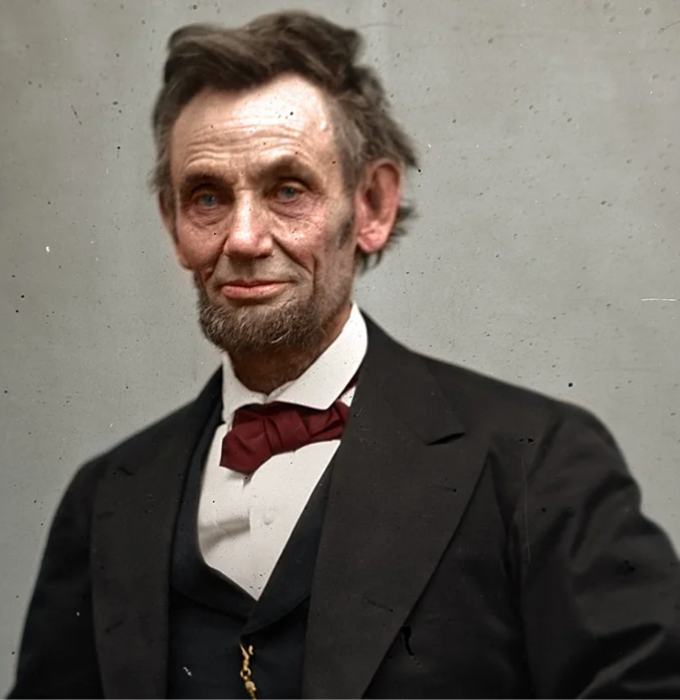August 2, 2024
Economics
Abraham Lincoln believed that both human advancement and political stability for the American democratic republic depended on workers’ dignity and ability to improve their conditions.

A colorized photograph of Abraham Lincoln in February of 1865 via Wikimedia Commons
In 1847, Lincoln wrote that goods rightfully “belong to those whose labour has produced them,” and any good government should ensure that workers receive the entire product of their labor “or as nearly as possible.”
""...(Literature scholar Owen) Cantrell writes that Lincoln believed that both human advancement and political stability for the American democratic republic depended on workers’ dignity and ability to improve their conditions. He envisioned the Civil War as a fight between a slave economy that left workers powerless and a kind of capitalism in which they could use the cash economy to advance, improve production techniques, and create better material conditions for the country as a whole.""
""...In the end, the post-Civil War era did bring a new labor system, though not one for which either Marx or Lincoln had hoped. It saw the rise of large corporate employers and the consignment of an increasing part of the workforce to lifelong wage work—thanks in significant part to Lincoln’s Republican Party choosing to ally itself with the corporations."" - Livia Gershon
Labor




